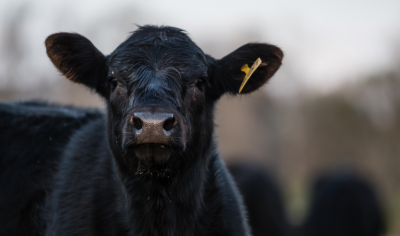National Food Strategy: call for evidence launched

A call for evidence has been launched to allow everyone – including producers, farmers, scientists, academics and consumers – the opportunity to shape how food is made, sold and consumed in the UK.
The consultation opened on Saturday (17 August) and will run until 25 October.
The submissions will inform what was said by the Government to be the first major review of the nation’s food system in nearly 75 years. It is due to be published in summer 2020.
Launched in June, the review is headed by Henry Dimbleby, co-author of the Government’s childhood obesity plan and co-founder of the Leon restaurant chain.
The Department for Environment, Food & Rural Affairs (Defra) said the National Food Strategy would build on the work underway in the Agriculture Bill, the Environment Bill, the Fisheries Bill, the Industrial Strategy and the childhood obesity plan.
The scope of the review will be England, but the strategy will consider relationships with the devolved administrations, the EU and other trading partners.
It will look at what is working well already and the role of new technology to revolutionise food supply – from innovations like vertical farming and robotics, to carbon-neutral manufacturing and crops that tackle climate change. Defra said no idea was “too big or small” to be considered.
Emerging threats to food production
Environment secretary Theresa Villiers said the threats from climate change, loss of biodiversity and the need to deliver safe and affordable food gave rise to new challenges that must be addressed.
“As we leave the EU and seek to capitalise on the opportunities this can provide for the UK’s farmers and food producers, we have the chance to reshape our food system, from farm to fork, to ensure it is ready to deal with these 21st century pressures,” Villiers said.
“We should not underplay the importance of the food we eat for our environment, our health and our society, and I encourage people to share their views on the way ahead.”
Food and Drink Federation (FDF) chief executive Ian Wright suggested the call for evidence signalled the “serious commitment” from Government to the first independent review of the food and drink sector in more than 70 years.
He said the FDF would be submitting evidence, and encouraged everyone up and down the food and drink supply chain to do the same.
“We are absolutely delighted that Defra will be leading this work, with the Food and Drink Sector Council playing a leading role in shaping the strategy as it develops,” Wright said.
“Food and drink is part of our critical national infrastructure. The National Food Strategy will ensure that UK food and drink remains a vital national asset, and continues to be one of the UK’s biggest success stories.”
‘Once in a generation opportunity’
Iain Ferguson, industry co-chair of the Food and Drink Sector Council claimed the National Food Strategy offered a “once in a generation opportunity”.
“We encourage everyone in the industry to contribute their ideas to help create the sustainable food system of the future,” Ferguson said. “The Food and Drink Sector Council will give Henry Dimbleby and the review its full support.”
National Farmers’ Union president Minette Batters said: “British food is among the best, safest and most affordable in the world and UK farming plays a crucial role in providing the raw ingredients that form the backbone of our country’s food system.
“It’s time we took pride and interest in our food industry, which is worth £120bn to the national economy and employs four million people.”
Professor Judy Buttriss, director general of the British Nutrition Foundation, said: “The call for evidence to help develop Defra’s National Food Strategy provides an opportunity to shape a strategy that looks at food, nutrition and the environment in the round, through multiple lenses. The opportunity should not be missed.”
Independent review lead Henry Dimbleby said: “We’re launching the call for evidence today to gather insights and inspiration to help transform our food system.
“These could be policies or ideas that make it easier for us to make more informed decisions about the food we eat; that make food production more environmentally sustainable; that help food businesses and communities to thrive; or that could put our country at the forefront of innovation in the coming years.”















